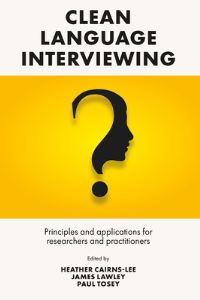“Client feedback is often inversely correlated to coaching quality — it is one of the least reliable measures we have.” Or so a recent post to an coaching online discussion group by a professor of coaching would have us believe.*
My mind went back to RD Laing’s book of Knots and I was inspired to emulate the old master with my own version:
He does not think the coaching he received was of any use
because
he is unable to reliably measure
the quality of the coaching he received.
He does not know the coaching he received was excellent
because
he is unable to reliably measure
the quality of the coaching he received.
He does not know that he does not know
he is unable to reliably measure
the quality of the coaching he received.
Therefore
we can disregard his assessment that the coaching was of no use
because
he is unable to reliably measure
the quality of the coaching he received.
We could coach him to realise that
he is unable to reliably measure
the quality of the coaching he received.
And because
he would receive excellent coaching
he would come to realise that
he is unable to reliably measure
the quality of the coaching he received.
Then
he would think the quality of the coaching he received was excellent
but because
he is unable to reliably measure
the quality of the coaching he received
we can disregard his assessment that the coaching was excellent.
(with apologies to RD Laing)
* Clutterbuck, D. (2013, April 23). Comment on coach assessment. eurocoachlist.com [Link no longer available]
Postscript
A few years after this blog, Susie Linder-Pelz and I published our research comparing coachee, coach and expert assessment of the quality of coaching:
Lawley, J. & Linder-Pelz, S. (2016). Evidence of competency: exploring coach, coachee and expert evaluations of coaching, Coaching: An International Journal of Theory, Research and Practice. doi.org/10.1080/17521882.2016.1186706
Competency-based coach training and assessment implies that coaching skills and effectiveness are closely related. But who is best placed to determine ‘effectiveness’? This paper reports on research that examined how closely the evaluations of coachees, expert-assessors and coaches correspond. The research used a novel multi-method approach to triangulation including Clean Language interviewing (CLI) to explore coachees’ experience and evaluation of coaching. Preprint: Download preprint (PDF)








